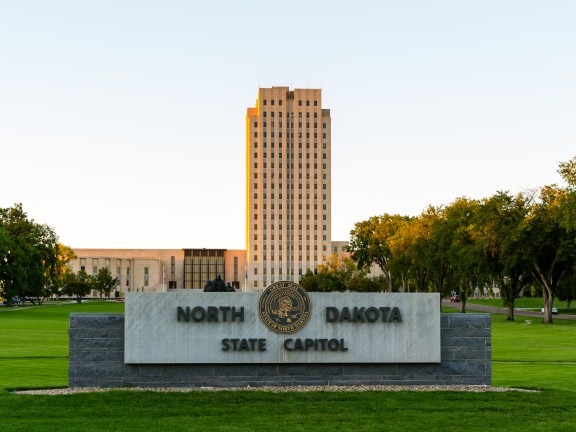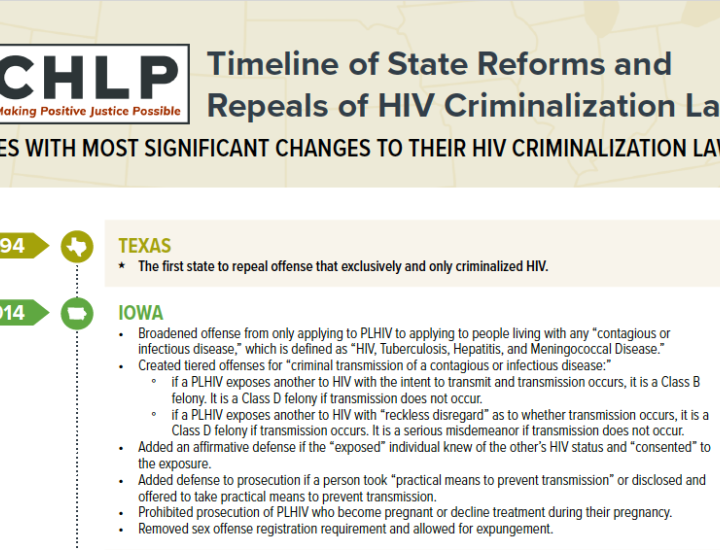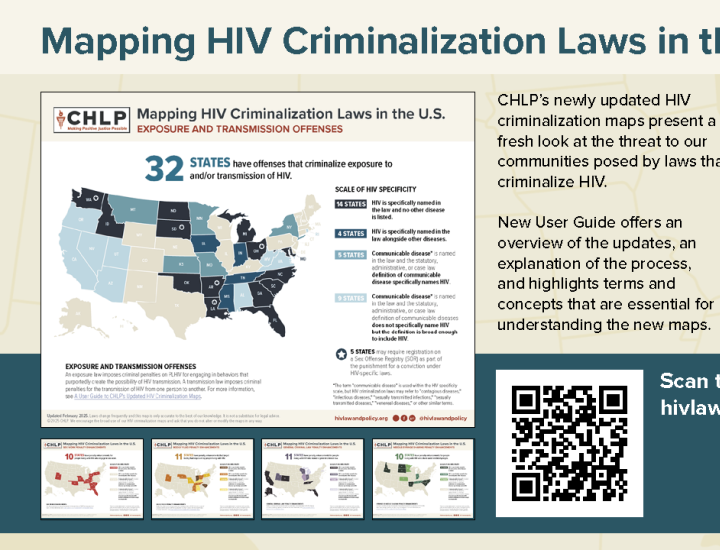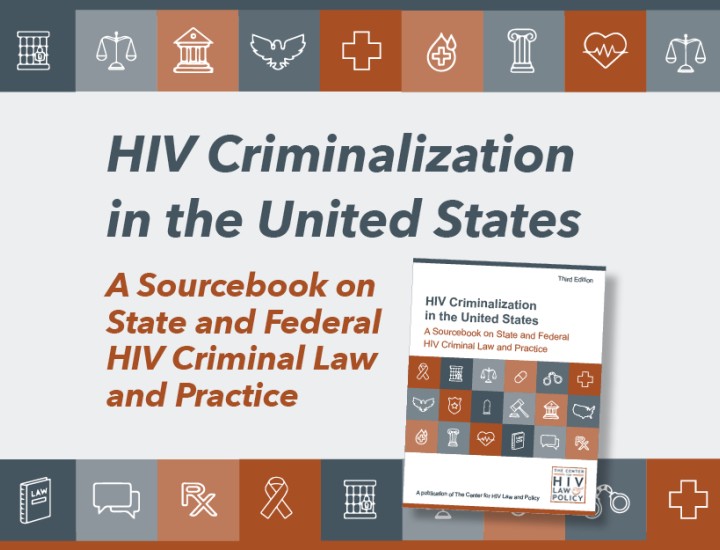North Dakota Becomes Fourth State to Fully Repeal HIV Criminal Law

On March 19, the governor of North Dakota signed bipartisan House Bill 1217 into law, making North Dakota the fourth state to fully repeal its HIV criminal offense. HB 1217 was introduced to change the law so that it more aligns with current scientific understanding of the realities of the routes and risks of transmission of HIV.
The process leading to this victory was powered by broad-based support, with bipartisan backing from lawmakers and key endorsements from the Department of Health and Human Services, the ACLU of North Dakota, Shine Bright & Live, and the North Dakota Human Rights Coalition. During his testimony, Jason Gruenich, the Executive Director of Shine Bright & Live highlighted the expertise of the Center for HIV Law and Policy, using their insights to educate legislators about the laws applicability whether or not transmission of HIV occurred.
This is a monumental step forward in the fight against HIV criminalization and stigma. The threat of criminalization is a major barrier that keeps people from seeking HIV testing and treatment. By removing this barrier, North Dakota is taking a step toward improving public health outcomes and empowering individuals to access vital medical care and treatment.
Previously, under N.D. Cent. Code § 12.1-20-17, people living with HIV (PLHIV) could be prosecuted for engaging in sexual activity if they did not disclose their status. The law criminalized low- or no-risk sexual activity, including oral sex. The law applied regardless of whether there was any intent to transmit or whether transmission occurred. A conviction under this law resulted in a Class A felony, punishable by up to 20 years of imprisonment.
The law also extended to other actions, such as sharing syringes or needles without sterilization, even when there was no intent to transmit HIV or actual transmission. Convictions for this offense carried the same harsh penalty of up to 20 years imprisonment.
While the repeal of this law marks a significant step forward in aligning the state’s legal framework with current science and public health goals to end the HIV epidemic, PLHIV should remain aware of ongoing legal risks. Under N.D. Cent. Code § 23-07-21, individuals may still face a public health infraction punishable with a $1,000 fine if they fail to comply with health department directives and “knowing [they] are infected with a sexually transmitted disease, willfully exposes another person to infection.”
While these infractions carry lesser penalties than the now-repealed criminal statute, they perpetuate the marginalization of PLHIV and create additional legal vulnerabilities. Additionally, repeated violations of this infraction, three times within one year, can result in a class B misdemeanor, which carries a maximum penalty of 30 days in jail, a $1,500 fine, or both.
We may find ourselves in a political moment where federal partnerships are uncertain, but the passage of HB 1217 shows that the fight to decriminalize HIV continues to make significant strides at the state level. We celebrate this victory while continuing the work to address the remaining policies that undermine the rights of PLHIV.


